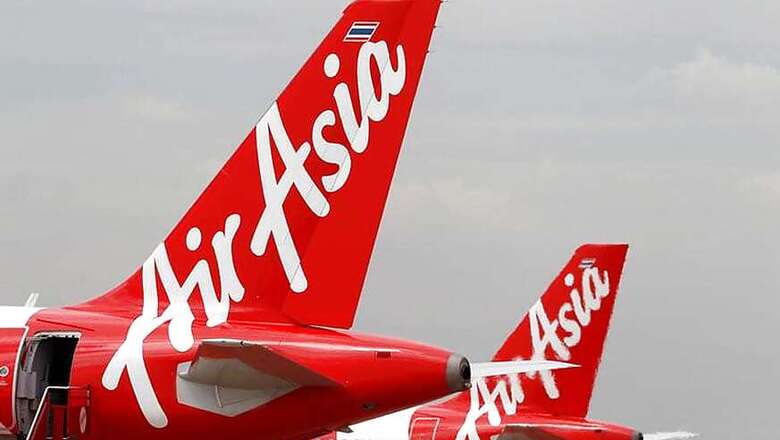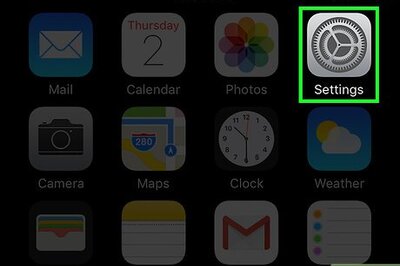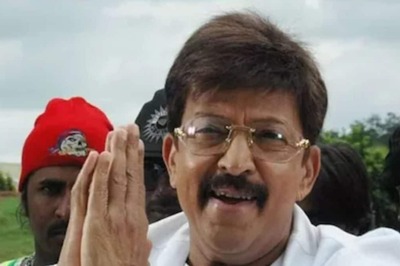
views
AirAsia India can appreciate limits placed on airfares as it is a "very very short term" measure, its CEO and MD Sunil Bhaskaran on Friday said, adding that the airlines and the market should ideally be left alone when it comes to deciding ticket prices.
On May 21, the central government issued coronavirus-related guidelines to restart domestic flights from May 25 and prescribed a lower limit and upper limit on airfares after setting up seven categories of routes as per the flight duration. It clarified the fare limits would be in place till August 24.
"Ideally, we would like it to be a free market, as far as prices are concerned. But given the circumstances and as a very very short term measure, we can appreciate it (limits on fares)," said the Chief Executive Officer and Managing Director of the low-cost carrier at a webinar of aviation consultancy firm CAPA India.
"We can understand this. But I don't think this could ever be or this should be a permanent measure. The market has to be left (alone) and the airlines have to be left (alone) to decide," he added.
Domestic passenger services restarted after a gap of two months on Monday when 428 flights carried around 30,000 passengers to their destinations.
When asked about the passenger traffic since Monday, Bhaskaran said, "We do feel that the pent up demand may last for two or three weeks and it is up to us and the airports to bring the confidence in people to travel...Quite frankly, we have taken a more pessimistic view of how things would be or maybe conservative. We would be very happy to see an upside to what we have planned."
When asked which routes the aircraft are likely to see high traffic in the next few months, he replied, "When we see it, one big factor is the quarantine rules in the state and how clear it is to understand and whether there is an institutional quarantine."
He said when a plane goes outside of Bengaluru, it has been seeing good loads (number of passengers) since Monday, but when it comes back to Bengaluru, it has abysmal loads because people don't want to come and go into institutional quarantine.
"We are seeing many of these migrant labourers moving largely to the north and to the east. These are people who are stuck and who would like to get back to their homes. These are the segments that are doing well. How long will they continue? We don't know," Bhaskaran said
"But the numbers (of migrant labourers) we are hearing so huge that it could probably support for another 2-3 weeks," he added.
AirAsia India has been waiting for the government's nod to restart international flight operations for quite some time.
"When we look back, the luckiest thing that could happen to us was that we didn't have international (ops). Otherwise, the hit to us would have been much worse," Bhaskaran said.
While domestic traffic will come back, I don't think the international traffic will come back so quickly and therefore, we have got some more time to plan on how to restart international operations, he said.
He said he is less worried about starting international flight operations as compared to three months ago when it was the biggest thing on his agenda.
"All indications we have is that we will get approvals very quickly," he added.
When asked when would the expansion of Indian aviation begin again, the CEO said: "A, we see today, it (growth) has to come with the confidence in the customers which will come when there is a cure or a vaccine in place. And I don't see it coming back in 18-24 months."
"So, I think it is a pause for Indian aviation for two years. But we will surely get to the growth path after that," he added.
On May 21, Directorate General of Civil Aviation (DGCA) set the fare bands in this manner: domestic flights with less than 40-minute duration to have a lower and upper limit of Rs 2000 and Rs 6000, for 40-60 minutes Rs 2,500 and Rs 7,500, for 60-90 minutes Rs 3,000 and Rs 9,000, for 90-120 minutes Rs 3,500 and Rs 10,000, for 120-150 minutes Rs 4500 and Rs 13000, for 150-180 minutes Rs 5500 and Rs 15700.
Flights with a duration between 180-210 mins, like ones on Delhi-Coimbatore route, to have a lower and upper limit of Rs 6500 and Rs 18600, the Directorate General of Civil Aviation said in its circular.
Also Watch:
















Comments
0 comment